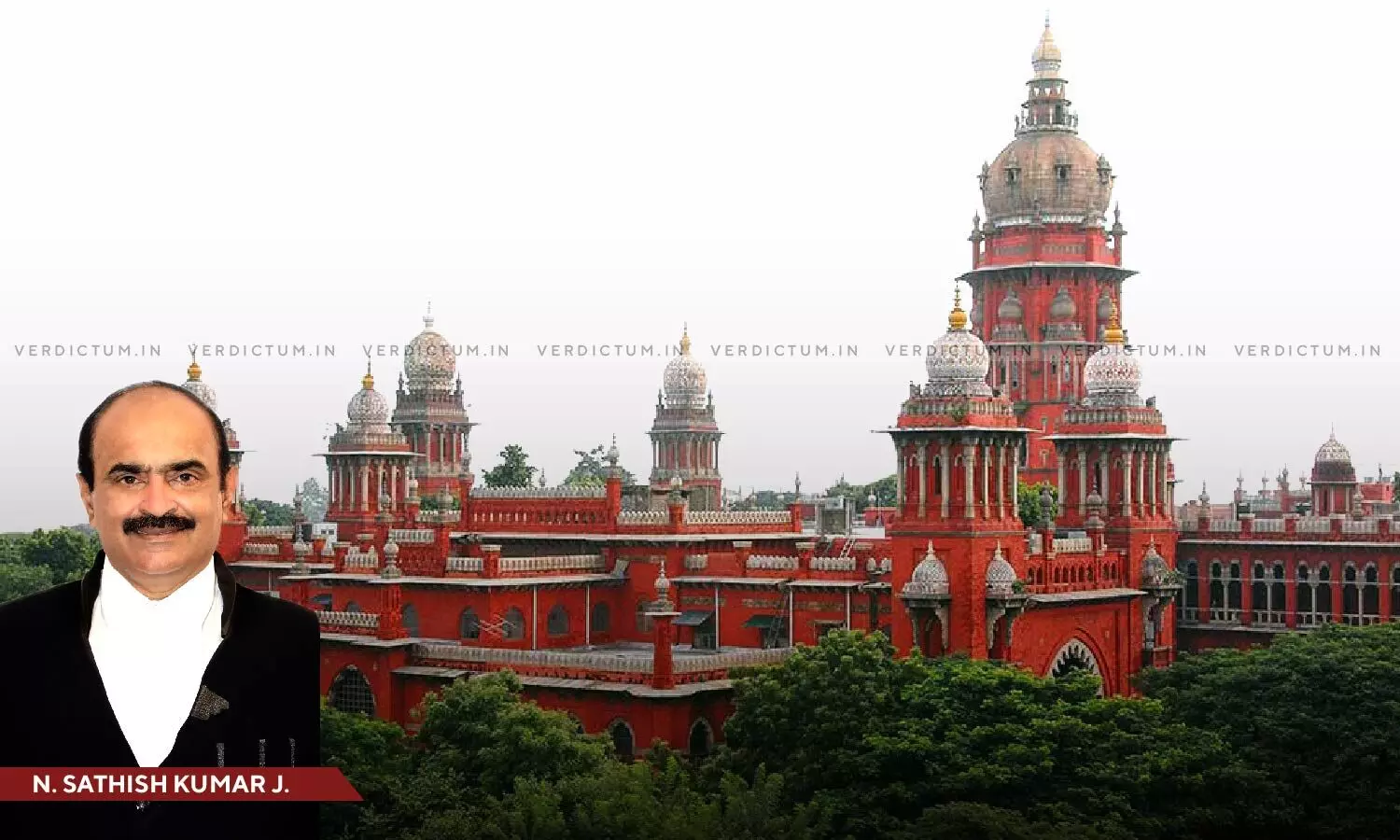
No Comprehensive Regulation Exists For Charitable Endowments For Christians; Statutory Board Needed To Regulate Its Administration: Madras HC
 |
|The Madras High Court has taken note of the fact that while the charitable endowments of Hindus and Muslims are subject to statutory regulation, no such comprehensive regulation exists for such endowments for Christians.
The High Court has held that in order to make the institution of Church more accountable, there must be a Statutory Board to regulate the affairs of the administration.
The Single-Judge Bench of Justice N.Satish Kumar said, “The Churches not only have the vast properties but also educational institutions. In the process, the institutions which these persons ie., the so called elected persons, who are said to be helm of affairs, are supposed to protect and safeguard suffer administratively and financially as their funds are drained to fuel the power struggle.”
The Petitioner was represented by M/S. H.Thayumanasamy while the Respondents were represented by AGP M. Sarangan.
The High Court was considering a petition challenging the proceedings of the Bishop-Chairman staying the appointment of the petitioner as the Secretary-Correspondent of the Scott Christian College (Autonomous), Nagercoil. Another petition was also filed seeking for a direction to the Director of Collegiate Education, Chennai and the Regional Joint Director of Collegiate Education, Tirunelveli to consider the petitioner's representation and ensuring Direct payment system for the payment of monthly salaries towards the employees.
One of the contentions raised by the Respondent was that the Bishop can direct any Council, Board, Committee, Sub-Committee or Church meeting to consider any special subject and a special meeting shall be called if he so desires. As per Part II Rule (XI) of the said Constitution, the Bishop has stayed the Executive Committee resolution appointing the petitioner as a Secretary of the respondent College. As per the said Rule, the Bishop is also entitled to stay the notification and accordingly, the same has been exercised.
On the other hand the Petitioner submitted that only when the resolution of the Executive Committee is against the Constitution and practice of Diocese, such action is permissible under Part II Rule (XI) of the said Constitution.It was further contended that the power of stay available under the Rule has not been properly exercised and the same has been exercised with motive.
The Bench noted that the petitioner was elected as Secretary of the C.S.I. Kanyakumari Diocese. The Executive Committee selected him as a Corespondent of Scott Christian College (Autonomous), Nagercoil. Based on the allegations made by the Assistant Professors, whose applications were not forwarded by the petitioner, when he was working as Secretary in the earlier period, his appointment sought to be stayed by the Bishop, apart from other allegations of construction of the building without any permissions. It was also admitted by both sides that the highest decision making body is the Diocesan Council.
The Bench discarded the petitioner’s contention that as the Executive Committee had passed a resolution not to call for a special meeting of Diocesan Council, the Diocesan Council could take a decision only in the next annual meeting.
Referring to Section 63.4 (G) (b) of the said Constitution, the Bench observed thatif any action of the Committee is against the Constitution of the Diocese, the Bishop has power to stay that decision and place the matter before the higher body in the next meeting. Therefore, it cannot be said that the meeting of the Diocesan Council can be convened only annually or only at the request of the Executive Committee. The Bench also directed the Bishop i to call for Diocesan Council meeting within a period of two months.
“The stay granted by this Court by an order dated 02.08.2024 in respect of the proceedings by which, the Bishop had appointed himself as Correspondent in-charge is extended until further orders. Similarly, the interim order passed by this Court dated 28.08.2024 is also extended until further orders. The Diocesan Council shall decide the issue within a period of two months”, it said.
The Court also took note of various instances of mismanagement and misuse of the Church properties and its funds. “While the charitable endowments of Hindus and Muslims are subject to statutory regulation, no such comprehensive regulation exists for such endowments for Christians. Thus, the only scrutiny/oversight over the affairs of these institutions is by way of a suit under Section 92 of the Code of Civil Procedure”, it added.
Explaining that Trusts & trustees, charities & charitable institutions, charitable & religious endowments & religious institutions fall under List III (Concurrent List) in Schedule VII of the Constitution of India, the Bench held, “As there is no Central Legislation holding the field, there cannot be any embargo for the Union or the State Governments to bring about a legislation in the light of the circumstances prevalent in this regard. For to make the institution more accountable, there must be a Statutory Board to regulate the affairs of the administration and the learned Senior Counsel appearing for both sides have no quarrel on these issues.”
Listing the matter on November 18, 2024, the Bench suo-motu impleaded the Union of India, Rep. by its Secretary to Government, Ministry of Home Affairs, New Delhi and the State of Tamil Nadu, Rep. by its Chief Secretary to Government, Fort St. George, Chennai as parties in both the Writ Petitions and also directed them to file their reports explaining their stand in this regard.
Cause Title:S.Byju Nizeth Paaul v. The Director of Collegiate Education [Case No.- W.P(MD)Nos.17949 & 18256 of 2024]
Appearance:
Petitioner: M/S. H.Thayumanasamy
Respondent: AGP M. Sarangan, Advocate Mohammed Athiff, M/S.F. Deepak, Advocate Dilip Kumar, M/S.S.Bharathi Rajan